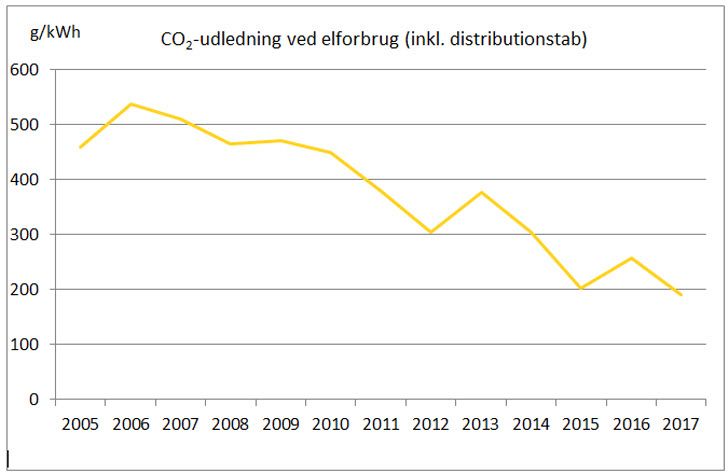It’s no great secret that Denmark is among the leaders in the world when it comes to sustainable energy sources. But now the Danes have even more to be chuffed about.
According to the environmental declaration report (here in Danish), published annually by national energy provider Energinet.dk, 2017 saw Danish CO2 emissions drop below 200 grams per consumed kWh (kilowatt hour) for the first time ever.
“Emissions have been dropping in tandem with the expansion of sustainable energy for a number of years now. The reason that 2017 was a record year was particularly down to more power plants phasing out coal in favour of biomass. Biomass for energy production is considered CO2-neutral,” wrote Energinet.dk.
“The percentage of wind, solar and water power in the Danish power outlets was collectively lower than the previous record year in 2015, but the share of biofuel has grown from 9 to 14 percent of an average kilowatt hour.”
READ MORE: Vestas still global kings of wind energy
Sustainable success
Coal accounted for just 17 percent of the energy consumed in Denmark last year, compared to 38 percent in 2005.
Meanwhile, sustainable sources accounted for a much higher percentage of energy. Wind energy led the way with 40 percent, while biofuel (14 percent), water (12 percent) and solar energy (2 percent) also chipped in.
Natural gas made up 7 percent of the energy consumed, while nuclear power and oil accounted for 3 and 1 percent respectively. Waste attributed to 4 percent.














